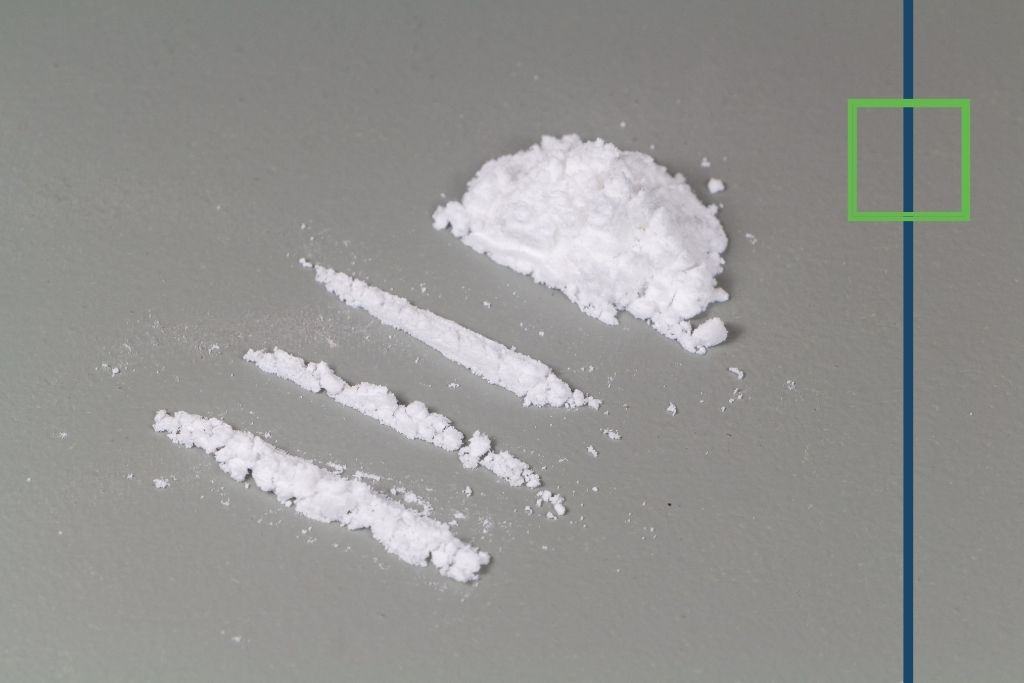What Is DXM?
Dextromethorphan (DXM) is a cough suppressor found in more than 120 over-the-counter (OTC) cold medications, either alone or in combination with other drugs such as analgesics (e.g., acetaminophen), antihistamines (e.g., chlorpheniramine), decongestants (e.g., pseudoephedrine), and/ or expectorants (e.g., guaifenesin). The typical adult dose for cough is 15 to 30 mg taken three to four times daily. The cough suppressing effects of DXM persist for 5 to 6 hours after ingestion. When taken as directed, side effects are rarely observed.
Unfortunately, DXM is abused in high doses to experience euphoria and visual and auditory hallucinations. Users take various amounts depending on their body weight and the effect they are attempting to achieve. Some users with substance abuse ingest 250 to 1,500 milligrams in a single dosage, far more than the recommended therapeutic dosages described above.
Some of the many psychoactive effects associated with high-dose DXM include:
- Confusion, inappropriate laughter, agitation, paranoia, euphoria, and hallucinations
- Other sensory changes, including the feeling of floating and changes in hearing and touch
Long-term drug abuse of DXM is associated with severe psychological dependence. Abusers of DXM describe the following three dose-dependent “plateaus”:

DOSE (MG)
100-200
200-400
300-1500
Behavioral Effects
Mild Stimulation
Euphoria and hallucinations
Distorted visual perceptions, loss of motor coordination and out of body sensations
Depending on the dose, DXM can have effects similar to marijuana or ecstasy. In moderate to high doses its out-of-body effects are similar to those of ketamine or PCP. [1]

Get Your Life Back
Find Hope & Recovery. Get Safe Comfortable Detox, Addiction Rehab & Dual Diagnosis High-Quality Care.
Hotline(844) 597-1011What Is Cocaine?
As a street drug, cocaine looks like a fine, white, crystal powder. Street dealers often mix it with things like cornstarch, talcum powder, or flour to increase profits. In addition, they may also mix it with other drugs such as the stimulant amphetamine, or synthetic opioids, including fentanyl drugs. [2] It is highly addictive. Addiction to cocaine can develop quickly, even after trying it only a few times.
Cocaine may increase your alertness and energy because it is a stimulant. It affects the neuropathways in your brain, leading you to feel talkative, energetic, and euphoric. Addiction can be physical, meaning your body craves the drug or addiction can be mental or you strongly desire the drug’s effects.
When mixing DXM and cocaine for a short period of time, it will bring you feelings of pleasure and satisfaction. As cocaine causes your dopamine levels to rise to make you feel euphoric. Cocaine may also minimize your desire for sleep and food. For some, cocaine helps them think and perform tasks more quickly. Seeing that, many users begin to crave the feelings that DXM and cocaine create.
DXM and Cocaine Mix
Even taking Cocaine without dextromethorphan has a negative effect on the heart, and then taking dextromethorphan with it increases the risk exponentially. While common, combining cocaine and dextromethorphan together or even hours apart can be extremely risky because it increases heart rate and blood pressure, further increasing the risk of a heart attack.
Cocaine use ranges from occasional to repeated or compulsive use, with a variety of patterns between these extremes. Any route of administration can potentially lead to the absorption of toxic amounts of cocaine, causing heart attacks, strokes, or seizures—all of which can result in sudden death.
- Among people aged 12 or older in 2020, 1.9% (or about 5.2 million people) reported using cocaine in the past 12 months.
- In 2021, an estimated 0.2% of 8th graders, 0.6% of 10th graders, and 1.2% of 12th graders reported using cocaine in the past 12 months.
- Among people aged 12 or older in 2020, 0.5% (or about 1.3 million people) had a cocaine use disorder in the past 12 months.
- In 2020, approximately 19,447 people died from a drug overdose involving cocaine. [3]

Some Cocaine addicts say it’s better to mix DXM and cocaine as they believe it helps to improve the overall psychoactive experience. This is not entirely true. When mixing Cocaine and dextromethorphan the interaction ‘tricks’ the brain into taking increased amounts of either the Cocaine, the dextromethorphan or both simultaneously. The brain seemingly develops a greater tolerance for both drugs leading the users to consume more.
Get Help. Get Better. Get Your Life Back.
Searching for Accredited Drug and Alcohol Rehab Centers Near You?
Even if you have failed previously and relapsed, or are in the middle of a difficult crisis, we stand ready to support you. Our trusted behavioral health specialists will not give up on you. When you feel ready or just want someone to speak to about therapy alternatives to change your life call us. Even if we cannot assist you, we will lead you to wherever you can get support. There is no obligation. Call our hotline today.
(844) 597-1011What Happens When You Mix DXM And Coke, Or Crack Cocaine?
It is not reccommended to mix DXM and cocaine. There are serious dangers with cocaine already, and more when considering mixing it with any other drugs. When DXM and cocaine are mixed together, they affect the body’s ability to keep the correct temperature and heart function. Users who mix DXM and cociane sometimes experience dangerous heart rate and function alterations, which can result in liver, kidney, or heart failure—or even death.
DXM Side Effects
Dextromethorphan may cause side effects. [4] Tell your doctor if any of these symptoms are severe or do not go away:
- Dizziness
- Lightheadedness
- Drowsiness
- Nervousness
- Restlessness
- Nausea
- Vomiting
- Stomach pain
If you experience any of the following symptoms, call your doctor immediately:
- Rash
Dextromethorphan may cause other side effects. Call your doctor if you experience any unusual problems while you are taking this medication.
First-class Facilities & Amenities
World-class High-Quality Addiction & Mental Health Rehabilitation Treatment
Rehab Centers TourRenowned Addiction Centers. Serene Private Facilities. Inpatient rehab programs vary.
Addiction Helpline(844) 597-1011Proven recovery success experience, backed by a Team w/ History of:
15+
Years of Unified Experience
100s
5-Star Reviews Across Our Centers
10K
Recovery Success Stories Across Our Network
- Low Patient to Therapist Ratio
- Onsite Medical Detox Center
- Comprehensive Dual-Diagnosis Treatment
- Complimentary Family & Alumni Programs
- Coaching, Recovery & Personal Development Events
DXM Effects On Blood Pressure
High blood pressure isn’t a common side effect of DXM. It should not have an effect on blood pressure when taken as recommended on the package. However, It is an opioid substance. Dextromethorphan or DXM overdose occurs when someone takes more than the normal or recommended amount of this medicine. This can be by accident or on purpose.
Symptoms of a dextromethorphan overdose [5] include:
- High or low blood pressure
- Breathing problems, including slow and labored breathing, shallow breathing, no breathing (especially in young children)
- Bluish-colored fingernails and lips
- Blurred vision
- Coma
- Constipation
- Seizures
- Drowsiness
- Dizziness
- Hallucinations
- Slow, unsteady walking
- Muscle twitches
- Nausea and vomiting
- Pounding heartbeat (palpitations), rapid heartbeat
- Raised body temperature
- Spasms of the stomach and intestines
These symptoms may occur more often or be more severe in people who also take certain other medicines which affect serotonin, a chemical in the brain.
Cocaine And Blood Pressure
Compared with the non-user control cohort, cocaine users had increased aortic stiffness and systolic blood pressure, associated with greater left ventricular mass. These measures are all well known risk factors for premature cardiovascular events, highlighting the dangers of cocaine use, even in a ‘social’ setting, and have important public health implications. [6]
Cocaine is an illicit drug that is frequently used across a wide range of demographic groups. The acute cardiovascular effects of cocaine are well known and include, but are not limited to:
- Accelerated hypertension
- Acute myocardial ischaemia and infarction
- Aortic dissection
- Life-threatening arrhythmias
Even recreational cocaine users may have higher blood pressure, stiffer arteries, and thicker heart muscles. All of these conditions increase the risk of heart attack compared to non-users.
DXM And Cocaine Risks
11.3% of individuals diagnosed with an SUD have concurrent alcohol and illicit drug use disorders. Furthermore, having an SUD with one substance increases susceptibility to developing dependence on additional substances. For example, the increased risk of developing heroin dependence is twofold for alcohol misusers, threefold for cannabis users, 15-fold for cocaine users, and 40-fold for prescription misusers. Given the prevalence and risk associated with polysubstance use and current public health crises, examining these disorders through the lens of co-use is essential for translatability and improved treatment efficacy. [6]
World-class, Accredited, 5-Star Reviewed, Effective Addiction & Mental Health Programs. Complete Behavioral Health Inpatient Rehab, Detox plus Co-occuring Disorders Therapy.
CALL(844) 597-1011End the Addiction Pain. End the Emotional Rollercoaster. Get Your Life Back. Start Drug, Alcohol & Dual Diagnosis Mental Health Treatment Now. Get Free No-obligation Guidance by Substance Abuse Specialists Who Understand Addiction & Mental Health Recovery & Know How to Help.
Polysubstance Abuse
Receive treatment for co-occurring disorders today.
As the addiction treatment community begins to realize that addiction is itself a mental disorder, the relationship between substance abuse and mental disorders becomes more complicated. The greater treatment community largely lacks a proper understanding of dually diagnosed conditions, so these conditions are still treated separately, or worse–not treated or diagnosed at all. We Level Up dual diagnosis treatment centers in Florida, California, Texas, and New Jersey are some of the facilities that have professionals trained to help treat co-occurring disorders concurrently. This type of tandem treatment provides some of the best success rates.
Get dual diagnosis treatment for individuals struggling with substance abuse and mental health disorders.

How We Can Help? Searched for “inpatient consultants & drug and alcohol treatment centers?” or are you seeking a national inpatient rehab destination?
We Level Up is a multi-faceted primary drug and alcohol dual diagnosis program treating secondary co-occurring mental health conditions and polysubstance abuse. We Level Up team uses evidence-based proven methods to generate cutting-edge solutions to substance abuse and behavioral health challenges. With support programs targeted towards families and individuals. We work to improve the health of the public and of individuals from every behavioral and related integrated addiction primary and mental health secondary treatment option. This includes constant research and innovation on substance abuse and integrated co-occurring mental health treatment models paired with individuals in a conducive environment.
A person with a dual diagnosis has both a mental disorder and an alcohol or drug problem. These conditions occur together frequently. About half of people who have a mental disorder will also have a substance use disorder at some point in their lives and vice versa. The interactions of the two conditions can worsen both. [6]
We Level Up counselors understand and can make a drug addiction therapy recommendation or dual diagnosis treatment best suited to your needs. You may call us today to speak with one of our treatment specialists if you’re struggling with misusing DXM and cocaine.
Experience Transformative Recovery at We Level Up Treatment Centers.
See our authentic success stories. Get inspired. Get the help you deserve.
Start a New Life
Begin with a free call to an addiction & behavioral health treatment advisor. Learn more about our dual-diagnosis programs. The We Level Up Treatment Center Network delivers recovery programs that vary by each treatment facility. Call to learn more.
- Personalized Care
- Caring Accountable Staff
- World-class Amenities
- Licensed & Accredited
- Renowned w/ 100s 5-Star Reviews
We’ll Call You
Sources:
[1] DXM – Drug Enforcement Administration
[2-3] https://www.drugabuse.gov/publications/drugfacts/cocaine – National Institute on Drug Abuse; National Institutes of Health; U.S. Department of Health and Human Services
[4] Dextromethorphan – U.S. Department of Health and Human Services National Institutes of Health
[5] Dextromethorphan overdose – U.S. Department of Health and Human Services National Institutes of Health
[6] One Is Not Enough: Understanding and Modeling Polysubstance Use – National Center for Biotechnology Information


